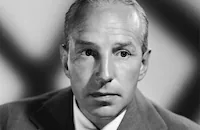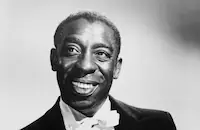Two Smart People

Brief Synopsis
Cast & Crew
Jules Dassin
Lucille Ball
John Hodiak
Lloyd Nolan
Hugo Haas
Lenore Ulric
Film Details
Technical Specs

Synopsis
Carrying $500,000 in stolen government certificates, which are stashed in the binding of his favorite cookbook, master confidence artist Ace Connors meets with businessman Dwight Chadwick at a posh Beverly Hills hotel to discuss an oil investment deal. Chadwick's sultry friend, Ricki Woodner, a confidence artist working a phony art racket, joins the men at their poolside rendezvous and tries to sell Chadwick on some paintings she claims were smuggled out of Europe. Ricki wastes little time in souring Chadwick on his deal with Ace, to which Ace responds by identifying one of her paintings as a fake. Following the meeting, Ace receives word that detectives in New York are closing in on his bond scheme, and that a deal is being made in which he is to serve a five-year sentence in Sing Sing penitentiary in exchange for his voluntary return to New York to face trial. Assigned to escort Ace back to New York is detective Bob Simms, Ace's inept but persistent nemesis of many years. Ace accepts the terms of the Sing Sing deal after a menacing visit from Fly Feletti, his former partner, who is seeking his share of the half million-dollar bond deal. While Simms keeps a close eye on Ace on the train trip to New York, Ace decides to make the five-day journey as pleasurable as possible, stopping to enjoy all attractions along the way. Ricki, unable to pass up the opportunity to get her hands on the stolen bonds, follows Ace onto the train and later joins him and Simms, whom she thinks is a fellow criminal, in a toast to "crime." Ricki quickly intrigues Ace, and, after she tells him that they belong together, the two kiss. The following day, Ricki learns that Simms is a police officer when she catches him searching through Ace's belongings, looking for the hidden bonds. Ricki also learns that Ace is on his way to Sing Sing, a fact that he wishes to keep a secret from her. Simms and Ricki are joined in their quest for the stolen bonds by Feletti, who is also traveling on the New York bound train. Feletti blackmails Ricki, coercing her to become his "partner" in the search for the certificates. Ace, meanwhile, has fallen in love with Ricki, and when the train makes a brief crossing into Mexico, he buys her a pin from a curio shop. Soon after arriving in New Orleans, Ace and Ricki rent costumes and get swept up in the Mardi Gras celebrations taking place in the city. Ace, dressed as a pirate, leaves his cookbook at the costume store, and manages to give Simms the slip. Ricki joins Ace on a merry escapade through New Orleans, and later suggests that they both flee to South America. Taking Ricki into his confidence, Ace tells her where he hid the money, and she is gone moments later. Ace follows Ricki back to the costume store, where he watches as she takes the cookbook and gives Feletti the slip. Feletti catches up to Ace in the store, however, and pulls a gun on him and demands his $500,000. Simms fires a shot at Feletti, killing him, and then handcuffs Ace. At the train station, Ace is surprised to find Ricki there, waiting to return his cookbook and bid him farewell. Ricki splits the miniature boots from the pin Ace gave her in Mexico and indicates that she will wait for him.

Director

Jules Dassin
Cast

Lucille Ball

John Hodiak

Lloyd Nolan

Hugo Haas
Lenore Ulric

Elisha Cook Jr.
Lloyd Corrigan

Vladimir Sokoloff
David Cota

Clarence Muse
George Magrill
Bobby Johnson
Jesse Graves
Lucius Brooks
Frank Johnson
Lynn Whitney
Erwin Kalser
Connie Weiler
Fred Nurney
Marek Windheim
William Riley
William Tannen

Eddie Kane
Fred "snowflake" Toones
Cleo Morgan
Peter Virgo
Gloria Anderson
Harold De Garro
Jimmy Magill
John Piffle
Tom Quinn
Gabriel Canzona
Emil Rameau

Shelley Winters
Leo Mostovoy
Paul Kruger
Margaret Jackson

Bess Flowers
Jean Andren
Lorenzo Lopez
Phil Dunham
Harry Depp
George Calliga
Mary Emery
Maria Dodd
Helen Dickson
Crew
Edward Baravalle
George Bassman
George Bassman
Ralph Blane
Leslie Charteris
Jack Dawn
James Z. Flaster
Karl Freund
Cedric Gibbons
Keogh Gleason
Sydney Guilaroff
Ethel Hill
Irene
Allan Kenward
M. J. Maclaughlin
Gladys Norvell
Ralph A. Pender
George Richelavie
Wade Rubottom
Chester W. Schaeffer
Douglas Shearer
Robert W. Shirley
Sid Sidman
Harkness Smith
Newell Sparks
W. W. Starr
William Steinkamp
Michael Steinore
Valles
Ralph Wheelwright
Ralph Wheelwright
Don T. Whitmer
Edwin B. Willis

Photo Collections
Film Details
Technical Specs

Articles
Two Smart People
That final MGM picture was Two Smart People (1946), a comedy-drama. John Hodiak plays a swindler who, about to be sent to prison, embarks on a cross-country trip with the sole purpose of eating enough gourmet food to compensate for the prison grub to which he will soon be subjected. Since he alone also knows the location of a stolen half-million dollars, fellow con artist Lucille Ball and cop Lloyd Nolan tag along.
Ball was not thrilled with this assignment, later describing the movie as "a real dog" and quoting The New York Times review which said, "[Ball] is painfully defeated by the script at every turn." The actress took her MGM severance hard. "I was terribly depressed," she wrote in her memoir. "Life seemed unbearable. Desi [Arnaz] was away rounding up a new band, so I sat home alone and cried." Soon enough, however, Ball got a new agent who helped get her career back on track with a movie at Universal, Lover Come Back (1946).
Two Smart People was directed by Jules Dassin, showing virtually none of the innovation he would soon bring to classics like Brute Force (1947), Thieves' Highway (1949), Night and the City (1950) and Rififi (1955).
Look for Shelley Winters in a bit role, and also for Hugo Haas in the role of Senor Rodriguez. Haas was a popular Czech actor and burgeoning writer-director who came to Hollywood in the late 1930s, where he found a career as a supporting player. In the 1950s he became an independent filmmaker - writing, producing and directing a number of cheap, lurid crime dramas like Pickup (1951) and Bait (1954).
Producer: Ralph Wheelwright
Director: Jules Dassin
Screenplay: Leslie Charteris, Ethel Hill, Allan Kenward (story), Ralph Wheelwright (story)
Cinematography: Karl Freund
Film Editing: Chester W. Schaeffer
Art Direction: Cedric Gibbons, Wade Rubottom
Music: George Bassman
Cast: Lucille Ball (Ricki Woodner), John Hodiak (Ace Connors), Lloyd Nolan (Bob Simms), Hugo Haas (Senor Rodriquez), Lenore Ulric (Marie Ynez), Elisha Cook, Jr. (Fly Feletti).
BW-93m.
by Jeremy Arnold

Two Smart People
Jules Dassin (1911-2008) - TCM Schedule Change for Director Jules Dassin Memorial Tribute on Friday, April 20th
Sunday, April 20th
8:00 PM Naked City
9:45 PM Topkapi
TCM REMEMBERS JULES DASSIN (1911-2008)
Jules Dassin gained experience in theater and radio in New York before going to work in Hollywood in 1940, first with RKO (as assistant director) and then with MGM. Dassin hit his stride in the late 1940s with such dynamic (and still well-regarded) film noir melodramas as "Brute Force" (1947), "The Naked City" (1948), "Thieves' Highway" (1949) and "Night and the City" (1950), starring Richard Widmark who died this past Monday, March 24th.
After being blacklisted he moved to Europe, where he scored his greatest international successes with the French-produced "Rififi" (1955) and the then-scandalous "Never on Sunday" (1959), starring his second wife Melina Mercouri. For the most part, his later films--such as "Up Tight" (1968), an ill-conceived black remake of John Ford's 1935 classic "The Informer"--have been disappointing and inconclusive. Dassin, however, maintained that among his own films, his personal preference was "He Who Must Die" (1958), starring his wife Melina Mercouri. It is one of his least known films and is rarely screened today but here is a description of it: "Greece, in the 1920's, is occupied by the Turks. The country is in turmoil with entire villages uprooted. The site of the movie is a Greek village that conducts a passion play each year. The leading citizens of the town, under the auspices of the Patriarch, choose those that will play the parts in the Passion. A stuttering shepherd is chosen to play Jesus. The town butcher (who wanted to be Jesus) is chosen as Judas. The town prostitute is chosen as Mary Magdalene. The rest of the disciples are also chosen. As the movie unfolds, the Passion Play becomes a reality. A group of villagers, uprooted by the war and impoverished, arrive at the village led by their priest. The wealthier citizens of the town want nothing with these people and manipulate a massacre. In the context of the 1920's each of the characters plays out their biblical role in actuality."
Family
DAUGHTER: Julie Dassin. Actor. Mother, Beatrice Launer.
SON: Joey Dassin. Mother, Beatrice Launer.
SON: Rickey Dassin. Mother, Beatrice Launer.
Companion
WIFE: Beatrice Launer. Former concert violinist. Married in 1933; divorced in 1962.
WIFE: Melina Mercouri. Actor, politician. Born c. 1923; Greek; together from 1959; married from 1966 until her death on March 6, 1994.
Milestone
1936: First role on New York stage (Yiddish Theater)
1940: First film as assistant director Directed first stage play, "The Medicine Show 1941: Directed first short film, "The Tell-Tale Heart"
1942: Feature directing debut, "Nazi Agent/Salute to Courage"
Jules Dassin (1911-2008) - TCM Schedule Change for Director Jules Dassin Memorial Tribute on Friday, April 20th
Quotes
Trivia
Notes
A working title for this film was Time for Two. Although contemporary sources noted that actress Cleo Morgan was Lucille Ball's sister, modern sources indicate that she was a cousin adopted by Lucille's mother.















